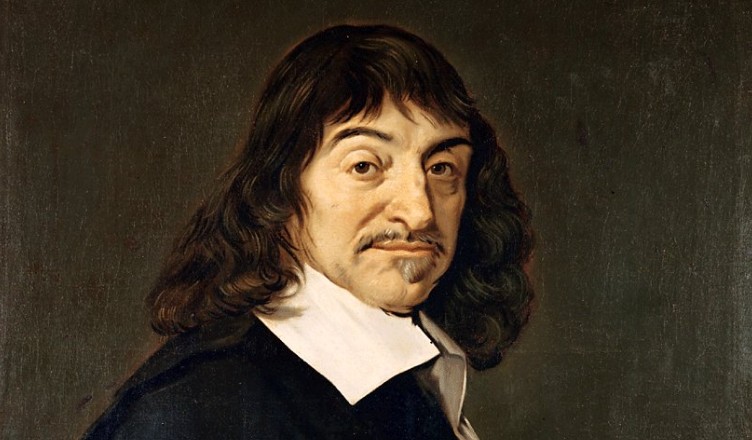I remember first being introduced to the famous quote, “I think, therefore I am,” by my father at the dinner table when I was a child. He had a habit of tossing out such quotations, often as a lighthearted or humorous response to a difficult question. Despite his working-class background and leaving school at 15, my dad has an insatiable curiosity and thirst for knowledge. He absorbed information like a sponge, turning to encyclopedias, history books, and other reference materials whenever he didn’t know something. He was my Google before the Internet.
He explained it to me fairly simplistically, “The fact that I am thinking is proof that I am real—I exist!” I remember thinking this sounded deeply profound, but also a bit self-evident. I mean, who is suggesting that you don’t exist? But the phrase stuck with me, and somehow became embedded in my own worldview; that reason, truth, and the strive for knowledge are central to our very existence.
I held it with me, as a principal truth, but never really unpacked it until recently when I heard it referenced in a debate, and decided to dig a bit deeper into the quote.
René Descartes was a Rationalist. This means he believed that reason and logical thinking are more reliable sources of knowledge than experience or sensory perception. Rationalists believe that our experiences and perceptions are subjective and cannot always be trusted, whereas knowledge obtained through logical thinking, much like mathematical truths or philosophical principles, are objective and remain universally true.
In 1641, Descartes published a series of Meditations on First Philosophy, in which he shut himself away in a heated room, isolated from all distractions, and systematically started to doubt everything. His goal was to strip away all uncertainty until he is left with an unshakeable foundation of irrefutable knowledge that he can then start to build on.
In Meditation 1, (Systematic Doubt), Descartes begins by questioning everything he believes to be true:
Our senses sometimes deceive us, how can we trust them entirely?
Sometimes when we dream, everything feels completely real—until we wake up, how can we be certain we aren’t dreaming now?
And here’s where it starts to sound like something out of The Matrix: What if a “malicious deceiver” is manipulating our thoughts, making us experience a reality that doesn’t even exist, how would we know?
He even questioned whether he has a body; hands, eyes, flesh, blood and senses, or merely believes he has all these things! By the end of the first meditation, Descartes is left with the terrifying realisation:
What if nothing is certain at all?
He writes, “so serious are the doubts into which I have been thrown as a result of yesterday’s meditation that I can neither put them out of my mind nor see any way of resolving them. It feels as if I have fallen unexpectedly into a deep whirlpool which tumbles me around so that I can neither stand on the bottom or swim to the top.”
It’s here, in Meditation 2, (The Cogito), where Descartes is struggling to find any foundation to stand on. In his journey to strip away all uncertain beliefs he discounts anything that can be doubted, no matter how unlikely, until he is left only with what he can know to be true. He asks, if my hands and body may not exist, and my memories might not be real, and the world might not even be real, then how do I know if I even exist?
The First Irrefutable Truth
Descartes realises that even if everything else is uncertain, he cannot doubt himself. He must exist, (in some shape or form), because even if he is being deceived entirely about everything, it’s still him that is being deceived. Even if he doubts his own existence, the very act of doubting proves that he exists, because he is doing the doubting. If he didn’t exist, he couldn’t be doubting his own existence!
Cogito, ergo sum — Je pense, donc je suis
This was originally written in Latin, then translated into French, but many believe the English interpretation is actually a mistranslation; a more accurate version would be, “I am thinking, therefore I am”. It’s the act of thinking that proves Descartes existence, (in that moment), not merely his ability to think.
Descartes continues his journey in four more Meditations on First Philosophy, where he argues that:
- God must exist, because the idea of a perfect, infinite God could not have been conceived by him, a finite, imperfect being. Only God could have placed this idea in his mind.
- If God is perfect, why do humans make mistakes? Descartes concludes that error comes from human free will, when we make judgements beyond what we clearly understand.
- He reinforces God’s existence, arguing that a perfect being, in order to be truly perfect, must exist and that God is not a deceiver—therefore, what we perceive clearly and distinctly must be true.
- And finally he considers whether the external, physical world really exists? He concludes that since he can clearly conceive of his mind (non-physical) as separate from his body (physical), the two must be distinct (mind-body dualism). Moreover, since God is not a deceiver, he would not trick us into believing in a physical world if it were not real—therefore, the external world and our bodies must exist.
As an atheist, I don’t share Descartes’ conclusions in his later meditations on the existence of God, nor do I believe they have endured as timelessly. However, I cannot help but admire his rigorous, methodical approach to seeking objective truth—dismissing everything questionable until only the undeniable remained: I think, therefore I am!






